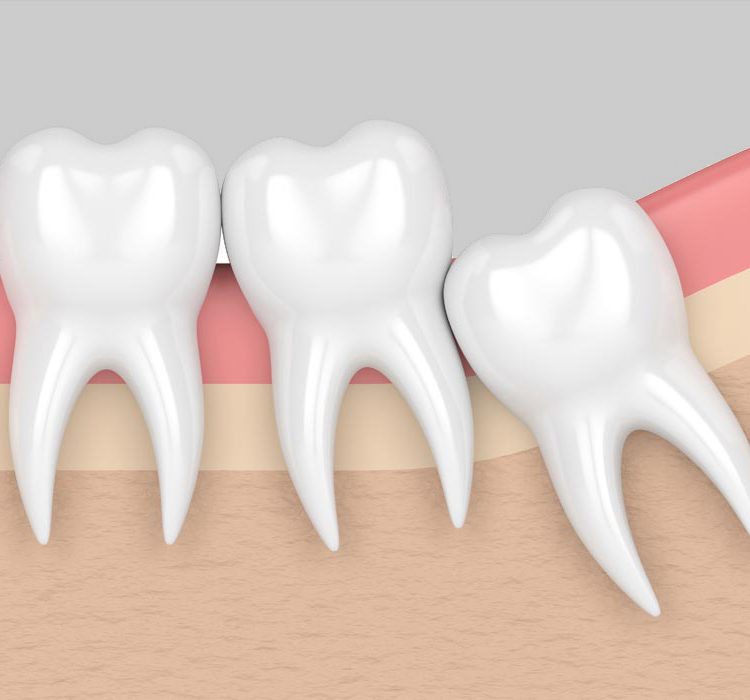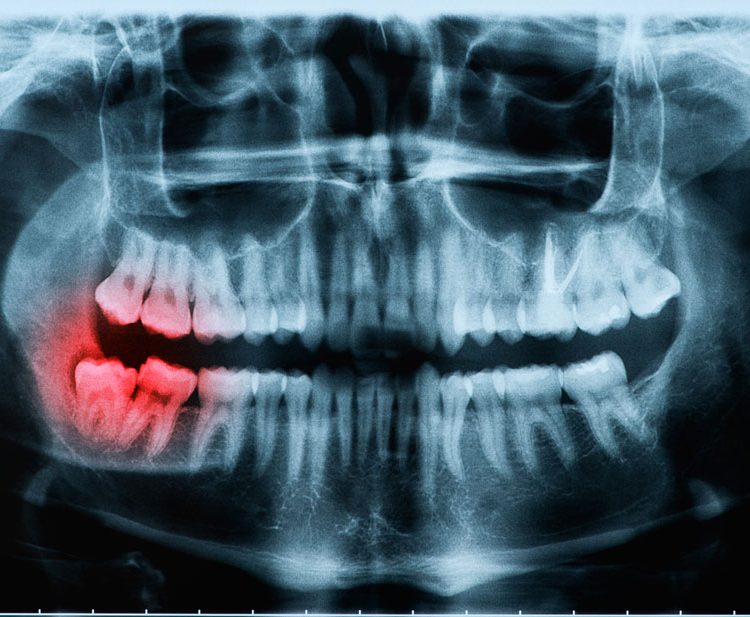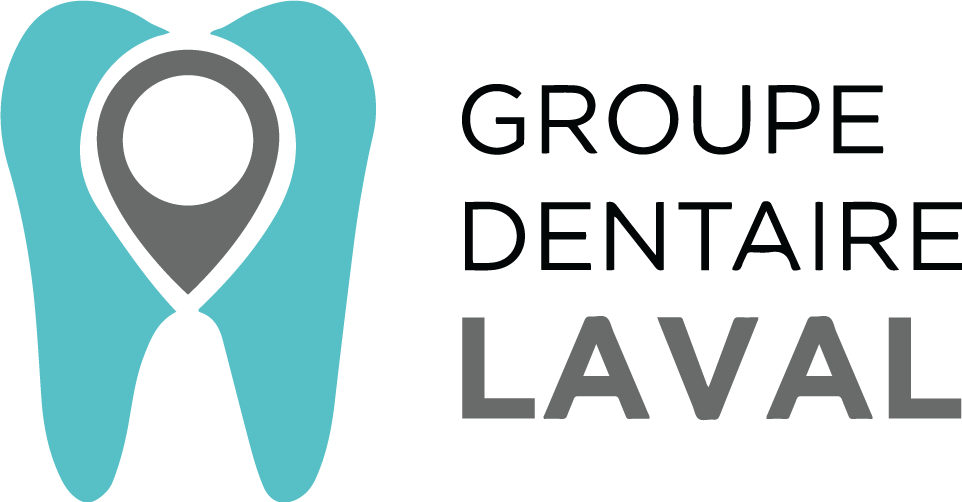WISDOM TEETH
What are wisdom teeth?
Wisdom teeth are the four third molars found in the back of your mouth. Although the majority of the population is said to have all four, it is possible for some people to never develop one or even all four molars. It is believed that in ancient times, wisdom teeth helped our ancestors break down coarse food like roots and leaves. With time and evolution, humans developed a narrower jaw and, of course, a different diet. Wisdom teeth now have no use.
Why should you remove them?
Wisdom teeth are commonly removed given the pain and discomfort they may cause. For instance, they may press against your other teeth. There may also not be enough space in your mouth for your wisdom teeth to grow properly. More serious complications may also arise, namely:
• Cyst formation, causing jaw damage;
• Eruption of the gum tissue, causing infection and/or inflammation;
• Damage to other teeth;
• Teeth misalignment;
• Cavities due to swollen gums.
When should you take them out?
Wisdom teeth are usually removed during the early years of adulthood, around the ages of 18 to 25, although this will differ from one individual to another.

Avoid Future Infections
Removing your wisdom teeth can avoid a lot of complications for the future.Conscious Sedation
We keep you comfortable and virtually pain-free.Quick Procedure
The procedure usually lasts less than 1 hour.Procedure by Specialist
Your extraction is done by a seasoned extraction specialist.
During surgery
Your dental professional will give you a shot of anesthesia at the beginning of the surgery in order to numb your mouth. The surgery usually lasts less than an hour, and is done in a safe and professional manner.
Post-surgery
Just like any other surgery, recovery is different for everyone. Most people feel little to no pain right after the wisdom teeth extraction, although it is likely to experience swelling and mild discomfort for the following days. Here are some tips for a quicker recovery:
• Use an ice pack on your jaw to ease with the swelling;
• Eat soft foods such as soup and pasta;
• Drink lots of water;
• Be extra careful when brushing your teeth; avoid brushing on stitches;
• Take the drugs prescribed by your dentist consistently.
What are the risks of removing wisdom teeth?
Complications may possible arise after removing wisdom teeth, such as:
• Use an ice pack on your jaw to ease with the swelling;
• Dry socket, which occurs when the blood clot is not formed properly after the extraction;
• Infection in socket due to bacteria formed by food particles;
• Damage to nerves, other teeth and jawbone.

